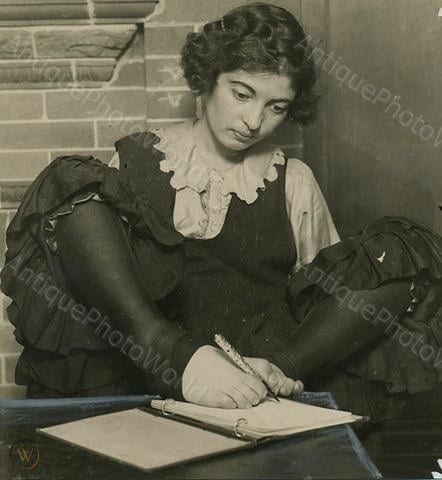
Journaling improves amputation recovery. You don’t know what journaling can do for your amputation till you try it. It puts a progression to your thoughts. You see the change in much more detail. By reflecting on things you wrote in the past, you see how much things have changed.
Journaling (or keeping letters or diaries) is an ancient tradition that dates back to at least 10th century Japan. Successful people throughout history have kept journals. Presidents have maintained them for posterity; other famous figures for their purposes. Oscar Wilde, a 19th-century playwright, said: “I never travel without my diary. One should always have something sensational to read on the train.”
Numerous psychological studies support the benefits of journaling. It lowers the symptoms of depression and anxiety. These findings are supported by a recent survey conducted by the University of Arizona, which concluded that journaling helps improve a person’s health. Journaling improves amputation recovery.
There is increasing evidence to support the notion that journaling has a positive impact on physical well-being. The University of Texas at Austin psychologist and researcher James Pennebaker contends that regular journaling strengthens immune cells, called T-lymphocytes. Other research indicates that journaling decreases the symptoms of asthma and rheumatoid arthritis. Pennebaker believes that writing about stressful events helps you come to terms with them, acting as a stress management tool, thus reducing the impact of these stressors on your physical health.
Scientific evidence supports that journaling provides other unexpected benefits. The act of writing accesses your left brain, which is analytical and rational. While your left brain is occupied, your right brain is free to create, intuit and feel. In sum, writing removes mental blocks and allows you to use all of your brainpower to better understand yourself, and the world around you. Begin journaling and begin experiencing these benefits:
Clarify your thoughts and feelings
Do you ever seem all jumbled up inside, unsure of what you want or feel? Taking a few minutes to jot down your thoughts and emotions (no editing!) will quickly get you in touch with your inner world and the changes your amputation has had. This is why journaling improves amputation recovery.
Know yourself better
By writing routinely, you will get to know what makes you feel happy and confident. You will also become clear about situations and people who are toxic to you — important information for your emotional well-being. This fights the feelings of being crippled or disabled. The emotional resolution comes when journaling improves amputation recovery
Reduce Stress
Writing about anger, sadness, and other painful emotions helps to release the intensity of these feelings. By doing so, you will feel calmer and better able to stay in the present. Writing about what is stressing you out encapsulates that stress and resolves it. Just another way journaling improves amputation recovery.
Solve Problems More Effectively
Typically we problem-solve from a left-brained, analytical perspective. But sometimes the answer can only be found by engaging right-brained creativity and intuition. Writing unlocks these other capabilities and affords the opportunity for unexpected solutions to seemingly unsolvable problems.
Resolve Disagreements With Others
Writing about misunderstandings rather than stewing over them will help you to understand another’s point of view. And you just may come up with a sensible resolution to the conflict.
In addition to all of these benefits, keeping a journal allows you to track patterns, trends, and improvement and growth over time. When current circumstances appear insurmountable, you will be able to look back on previous dilemmas that you have since resolved.
Your journaling will be most effective if you do it daily for about 20 minutes. Begin anywhere and forget spelling and punctuation. Write quickly, as this frees your brain from “shoulds” and other blocks to successful journaling. If it helps, pick a theme for the day, week, or month (for example, peace of mind, confusion, change, or anger). The most important rule of all is that there are no rules.
Journaling Improves Amputation Recovery
Journaling improves amputee recovery. Through your writing, you’ll discover that your journal is an all-accepting, nonjudgmental friend. And it may provide the cheapest therapy you will ever get. But the effectiveness of this practice depends on what you write and how you write. The more honest you are, the more you can see the changes you have made.
Write Down Your Goals Each Day
The main focus of journaling may vary as much as your personality. Your goals set the target you want to aim at, which varies every day. Once started, it is a matter of addressing how your goals have changed every time you begin journaling that day. One of the reasons why this format works is because writing down your goals every day reinforces your priorities. These changes show that what matters will change daily. This method helps you further refine your goals. The more you write, the more you notice that some become more specific while others are forgotten. Writing your goals every day helps you achieve what you want in life. It sends a message to your brain to take action until they become a reality.
You’ll notice that your goals are more precise and refined. They can also evolve or change altogether. Don’t worry if a goal falls to the wayside. This only shows that a specific goal wasn’t necessary for you. Simply put, this method allows you to hone in on what you want out of life. And don’t we all need clarity?
Journal in a Daily Log
The daily log is your running personal history. This can include what you did, ate, saw, and who you spoke with. It may sound mundane, but the best part of this format is that you have a hand-written record of your day-to-day life, which can come in handy later when you need to remember something.
Write Down Three Things That You Are Grateful For
This method allows you to focus on the things that are meaningful to you. Writing your gratitude list enables positivity to reverberate throughout the day. The main reason behind this method’s effectiveness is that it’s virtually impossible to feel stressed and grateful at the same time. Whenever you find yourself stressed and overwhelmed, turn to your journal and write down the things for which you am thankful. Make this a daily habit, and you’re sure to feel a domino effect of optimism with which you can approach any situation throughout the day.
If you already keep a planner or a to-do list, you can also write your gratitude list there. This way, you can look at your list throughout the day as you check tasks off your to-do list. I assure you that this method helps you keep things in perspective as you work to complete the day’s tasks.
Journaling to Solve Problems
If you’re having a hard time making a decision, then journaling can help you get unstuck. Many can attest to the practice’s problem-solving magic. This is because writing down your issues and problems can help you see that they’re not as daunting as they seem. Whenever you’re faced with a challenge, open your journal and write down the problem as a question at the top of the page. Next, write a list of potential solutions. You can also do some freewriting to dump all your thoughts and feelings about the issue. Then you can formulate possible solutions or a Pros and Cons list.
Journaling For Stress
When you’re stressed out, your mind tends to be scattered as well. And nothing good can come out of a stressed mind. Don’t be conscious of the words coming out incoherent or the structure being grammatically incorrect; the goal is to free up space in your mind by dumping everything that prevents you from thinking clearly. If you find yourself feeling stressed, grab your journal and open a new page. Write down everything that’s on your mind. If you’re not sure where to start, try answering these questions: “What’s making me stressed?” and “Why do I feel this way?” Remember that there are no time restraints; take as long as you need and fill up as many pages as you want. Focus on “getting it all out.”
What is the Best Thing That Happened Today?
One of the best ways to end a day is by being thankful. And writing about the highlights or the best thing that happened that day is a surefire way to get you into a grateful and calm disposition.
Doing six journaling exercises daily can be a bit too much. So, it’s best to choose which ones suit you best at this point in your life. If you’ve never kept a journal before, I suggest trying one idea and sticking to it for at least a week. Add more, as needed.





